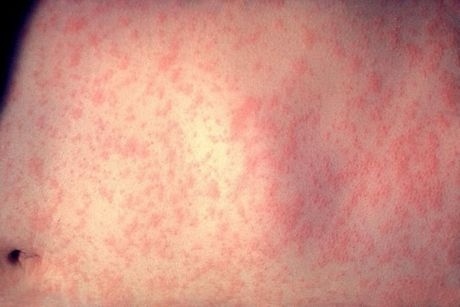
RESIDENTS should be on the look-out for measles symptoms after a primary school child was diagnosed with the serious condition today.
The child, whose family did not know the child had the condition, visited several locations during the infectious period.
Once the diagnosis was suspected the child has been kept in isolation at home by the family.
Darling Downs Public Health Unit director Dr Penny Hutchinson advised anyone who was at the following locations at the times listed to be on the look out for symptoms of the disease.
- – Darling Heights State School, Wednesday 30 April 2014
- – Toowoomba Medical and Dental Centre, corner West and James Streets, Toowoomba, Thursday 1 May between 9.30am and 1pm
- – Toowoomba Hospital Emergency Department, Tuesday 6 May between 12pm and 2.15pm
“Infection control measures were taken at the Toowoomba Hospital and the child did not spend any significant amount of time in the emergency department waiting room,” Dr Hutchinson said.
“However, we will be contacting any children or hospital staff who had contact with the child while they were in the emergency department to ensure they are appropriately vaccinated.”
Dr Hutchinson said she was concerned that the child may have contracted the disease from out-of-town visitors who were in Toowoomba for the annual Easterfest from 18 to 21 April 2014.
“Symptoms usually start around 10 days, but can occur between seven and 18 days after infection.
“This means that we could expect to see further cases up until 16 May.
“Anyone who develops measles-like symptoms within the next week or two should contact their GP for advice.
“It is very important to call the medical practice first to say you could have measles, so that staff can take precautions to avoid spreading the disease to others.
“Anyone who thinks they may have come into contact with the patient can also call 13 HEALTH (13 43 25 84) for advice.”
In the meantime, she said the community’s best defence was to ensure they were properly vaccinated.
“Adults who were born in 1966 or later and who do not have documentation of having received measles vaccine, or having had the infection are particularly at risk of contracting the disease, in the current outbreak setting.
“If in doubt, the message is to get vaccinated to help prevent you from contracting measles.
“If people are unsure of their vaccination status, it is important that they see their GP.
“If people are adequately vaccinated with two recorded doses of Measles Mumps Rubella (MMR) vaccine, they are very unlikely to get the disease.
“However, additional doses of the MMR vaccine are not harmful.”
Dr Hutchinson said measles was one of the most infectious of all communicable diseases and was spread by tiny droplets through coughing and sneezing.
Measles symptoms include:
- – Fever
- – Tiredness
- – Cough
- – Runny nose
- – Red/inflamed and light sensitive eyes
- – White spots on a red base inside of the cheeks
- – Blotchy, dark red rash which usually begins at the hairline
A fact sheet for the public about measles is available from Queensland Health here.
Source: The Chronicle
